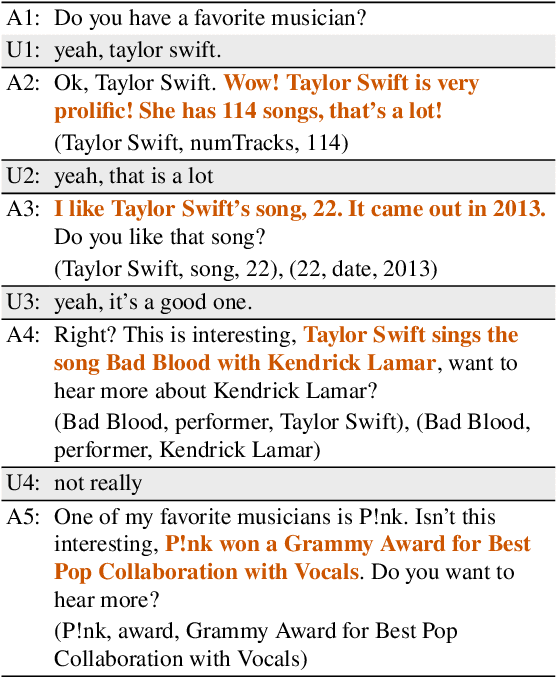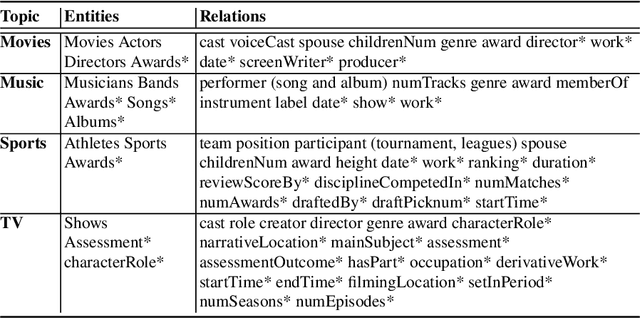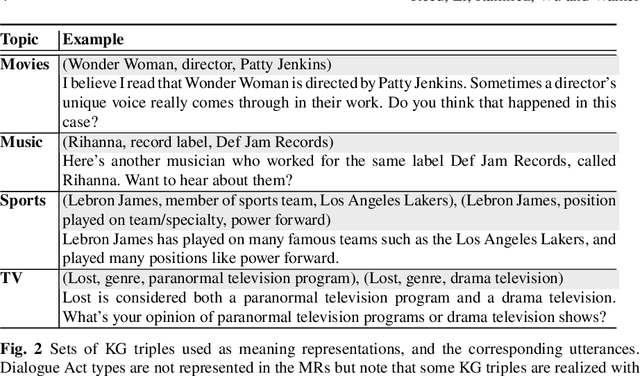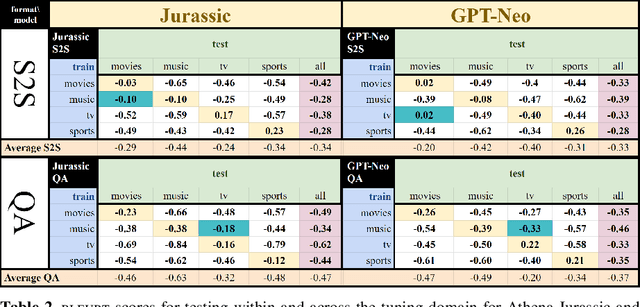Jurassic is All You Need: Few-Shot Meaning-to-Text Generation for Open-Domain Dialogue
Paper and Code
Nov 10, 2021



One challenge with open-domain dialogue systems is the need to produce truthful, high-quality responses on any topic. We aim to improve the quality and coverage of Athena, an Alexa Prize dialogue system. We experiment with few-shot prompt-based learning, comparing GPT-Neo to Jurassic-1, for the movies, music, TV, sports, and video game domains, both within and cross-domain, with different prompt set sizes (2, 3, 10), formats, and meaning representations consisting of either sets of WikiData KG triples, or dialogue acts. Our evaluation uses BLEURT and human metrics, and shows that with 10-shot prompting, Athena-Jurassic's performance is significantly better for coherence and semantic accuracy. Experiments with 2-shot cross-domain prompts results in a huge performance drop for Athena-GPT-Neo, whose semantic accuracy falls to 0.41, and whose untrue hallucination rate increases to 12%. Experiments with dialogue acts for video games show that with 10-shot prompting, both models learn to control dialogue acts, but Athena-Jurassic has significantly higher coherence, and only 4% untrue hallucinations. Our results suggest that Athena-Jurassic produces high enough quality outputs to be useful in live systems with real users. To our knowledge, these are the first results demonstrating that few-shot semantic prompt-based learning can create NLGs that generalize to new domains, and produce high-quality, semantically-controlled, conversational responses directly from meaning representations.
 Add to Chrome
Add to Chrome Add to Firefox
Add to Firefox Add to Edge
Add to Edge